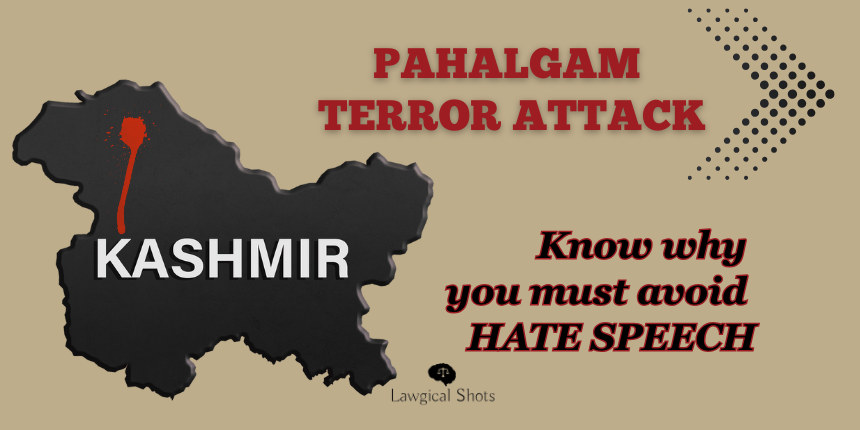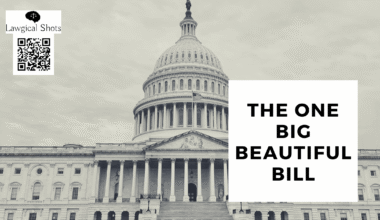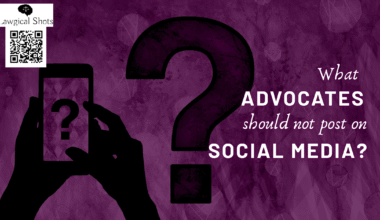India is a country wherein diverse religions, languages, cultures, etc. add different colours to the beauty of this land. The recent Pahalgam terror attack made Indians mourn the innocent lives lost during the attack. The blood shed by terrorists without any mercy is condemnable in all aspects. However, spreading hate speech against a particular religion just because the terrorists did so while committing the cowardly attack makes things worse. Here is a discussion on why you must avoid hate speech on Pahalgam Kashmir Terror Attack. It further explains hate speech laws to make the readers understand that the expression not only affects harmony but may also land them in jail.
Pahalgam Terror Attack
On April 22, 2025, the terror attack in Pahalgam, Jammu and Kashmir caught the tourists off-guard. The very unfortunate incident shook the whole nation. Every Indian has been grieving the loss of families, including couples who went for their honeymoon, those who went for a pilgrimage, those who had long planned a get away with their families, among others. As per Pahalgam terror attack news reports, the terrorists approached tourists one-by-one, enquired about their religion, and mercilessly shot those who were non-Muslims.
Following the sorrowful terror attack in Pahalgam, people have been pouring their emotions through various modes, including social media. Some even go on to share about how religious distance should be practiced. Some posts hold a lot of hate in the name of religion. We should not forget that India has once faced the wrath of partition in 1947 in the name of religious division. What we can see is whenever communal harmony is disturbed, ordinary people suffer. It is the common man who dies, gets injured, being a target of unwavering hatred. The Pahalgam terror attack was terrible, and Indians regardless of their religion mourn the unfortunate day. However, hate speech against a particular religion will only further the cause of terrorists in the recent Kashmir attack.
How is Hate Speech harmful?
To understand how hate speech may prove harmful, it is crucial to understand what constitutes hate speech in the first place. The 267th Law Commission Report mentions that “Hate speech is an expression which is likely to cause distress or offend other individuals on the basis of their association with a particular group or incite hostility towards them.” In another part, the said report seeks to further explain as “Hate speech generally is an incitement to hatred primarily against a group of persons defined in terms of race, ethnicity, gender, sexual orientation, religious belief and the like (sections 153A, 295A read with section 298 IPC). Thus, hate speech is any word written or spoken, signs, visible representations within the hearing or sight of a person with the intention to cause fear or alarm, or incitement to violence.”
As we can see, hate speech has the tendency to cause fear, alarm, or even incite violence. Hate speech against a group may cause distress, offend them, or incite hostility towards them. Simply put, hate speech can result in sidelining a particular group of people with a few words. These words, of course, affect the harmony among groups and ignites divisive behaviors. The actions of terrorists in the Pahalgam terror attack ignited hatred in the name of religion, and this has significantly impacted those belonging to a particular religion. Such hatred is not good for anyone, and furthers the divisive agenda of terrorists.
Hate Speech Laws in India
Hereunder, the legal provisions majorly addressing the restriction on hate speech in India have been simplified:
Constitutional Provisions against Hate Speech
In India, the freedom of expression is a fundamental right. However, the landmark cases on Article 19(1)(a) reaffirm that the right comes with some reasonable restrictions. The said restrictions as per Article 19(2) include interests of sovereignty, integrity, security, friendly relations with foreign states, public order, dignity, morality, contempt of court, defamation, or instigation of an offence. Hence, people who assume that they can say anything and everything they have on their mind underestimate the rights of others. However, the Constitution of India makes sure everyone’s rights are protected, be it the one speaking, or the one against whom someone is speaking up in an unwarranted manner.
Hate Speech under BNS
The Bharatiya Nyaya Sanhita, 2023 lays down and explains which actions constitute offence. The Sanhita further lays the punishments for such offences. In terms of hate speech laws in India, there are several acts which lead to hurting religious sentiments of one another and affect the unity, integrity and harmony in India. Below are such provisions which punish hate speech, which may be understood in context with the Pahalgam terror attack.
- Section 152 of BNS
The provision lays the punishment for an act endangering sovereignty, unity and integrity of India. In context with the hate speech laws in India, the provision particularly addresses words conveyed (said, written, visual representation, electronic communication, etc) which may encourage feelings of separatist activities. Any such act endangering the unity or integrity of India is also punished with imprisonment for life or imprisonment which may extend to 7 years, with fine.
- Section 196 of BNS
Bharatiya Nyaya Sanhita through Section 196 lays about the promotion of enmity between different groups on grounds of religion, race, place of birth, residence, language, etc., and doing acts prejudicial to maintenance of harmony. While terrorists used religion as a bait while committing the cowardly act in Pahalgam terror attack, some people while conveying a wake up call to the probable victims are sharing social media content which conveys hateful messages on the grounds of religion. It is not really good for harmony among people. In addition, Section 196(2) makes the offence punishable with imprisonment up to 3 years, with or without fine.
- Section 197 of BNS
The provision under Section 197 of Bharatiya Nyaya Sanhita lays about imputations, assertions prejudicial to national integration. It makes an offence regarding imputations, assertions, publication, or false/misleading information to convey that a particular community/group (based on religion/region/race/language etc.) cannot be truthful to the Constitution or uphold sovereignty or integrity of India; should be denied of rights as Indian citizens; anything to cause disharmony or feelings of enmity/hatred/ill-will between members; jeopardises sovereignty, unity and integrity or security of India. The said offence is punishable with imprisonment up to 3 yeast, with/without fine.
- Section 299 of BNS
As per Bharatiya Nyaya Sanhita Section 299, deliberate and malicious acts, intended to outrage religious feelings of any class by insulting its religion or religious beliefs are punishable with imprisonment up to 3 years or fine or both.
- Section 302 of BNS
The uttering of words, etc. with deliberate intent to wound religious feelings of any person is punishable under Section 302 of the Bharatiya Nyaya Sanhita. In context with hate speech laws, the provision particularly punishes people who deliberately say or convey something to wound the religious feelings of a person. Anyone committing such an offence shall be punishable with imprisonment up to 1 years, with or without fine.
Cyber Laws against Hate Speech
Since the internet allows people to conveniently share their opinions online for a larger audience, and also allows anonymity, they think they are far away from clutches of law. They assume that in the virtual world, they can spread hate against others and still get away with it. However, the Information Technology Act, 2000 makes sure the virtual world is also under the legal lens. Even behind the screen, your wrongful acts can put you behind the bars. Since the Pahalgam terror attack, so many people have taken charge of furthering the cause of religious rift ignited by the terrorists. They do not realize that if the unity and integrity of India suffers, all of us will suffer.
Also read about hate speech in Election Laws
Suo Motu FIR against Hate Speech
While there is no recent update on hate speech by the Supreme Court in context with the Pahalgam Kashmir terrorist attack, clear directions have been made earlier. The Supreme Court in April 2023 had directed the States to register suo motu FIRs against those making hate speeches. Now, while many people are expressing their religious emotions after the Pahalgam attack by sharing content hinting towards hatred against a religious community. However, what they do not realize is that the authorities no longer need a formal complaint or FIR to proceed legally. The Supreme Court directions to suo motu registration of FIR against hate speech empowers the governments.
Call for Responsible Citizenship
Hereabove, there are insights into how a person inciting hate speech against a religion, pertaining to the very unfortunate Pahalgam terror attack may land them in jail. However, what you need to understand is that communal harmony is the key to a better tomorrow. India is a country that embraces diversity. Whether with hate or peace, people from different religions will have to live together in a common space. We should not forget that there was a 28-year-old pony ride operator, who was Muslim by religion, and a human, an Indian at heart. He emerged as the savior for several lives, before being shot by the terrorists when he tried to take hold of the attacker’s weapon.
Now, imagine this – you have two neighbours, and you have hateful relations with one and friendly relations with the other. Any trouble on car parking, noise, garbage etc will bring easy solutions with the friendly neighbours with the help of effective communication. On the other hand, the stranded relations with the other neighbour will get bitter by the day if communication is not improved. At the end, people from different religious beliefs will share the resources and avoiding any hateful comments or hurting each other’s feelings will uphold harmony. Thus, responsible citizenry will make India a better place where people fight against terrorism as INDIANS, and not in the name of religion.
Also Check








